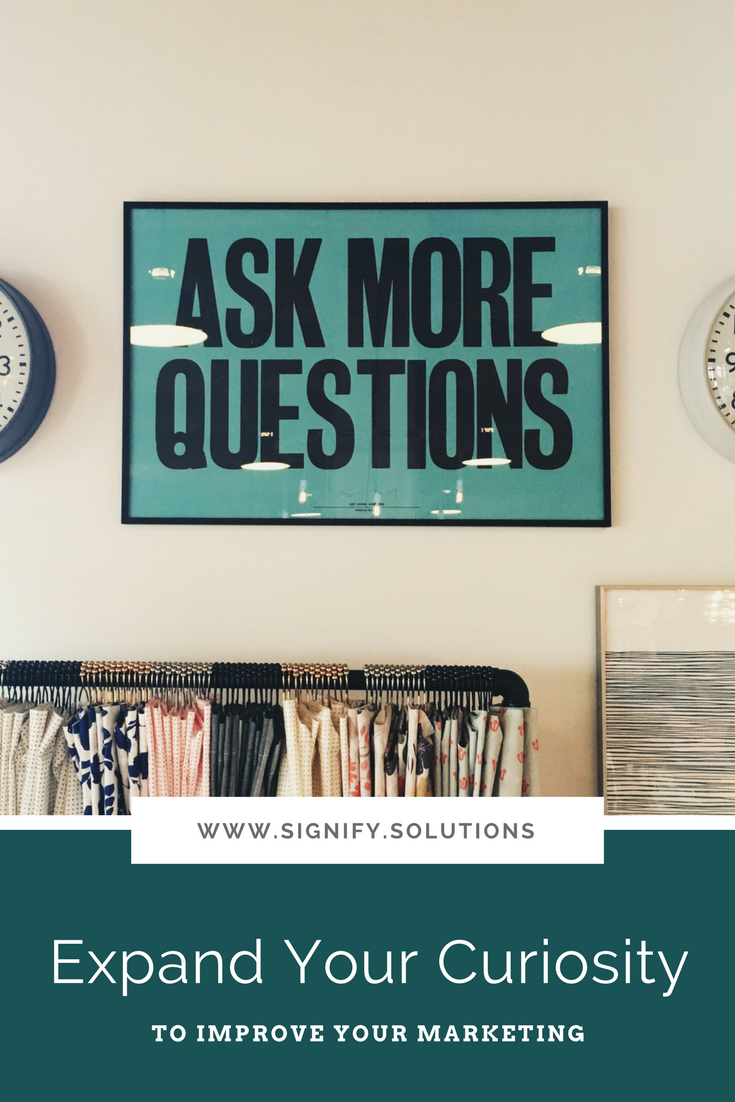As I write this post, I'm sitting in a fantastic restaurant in Washington, D.C., called Farmers & Distillers. It's definitely a menu that induces creativity! Check out the Founding Farmers restaurant group next time you're in D.C.! It's yummy!
Anywho, welcome to week four of the "Foundations" series. I'd like to discuss communications, and D.C. seems like a fitting place to chat about both foundations and communication.
Image Credit: TheFederalist.com
SPECIFICALLY, I'D LIKE YOU TO COMMUNICATE BETTER.
Like thousands of other people, I'm currently obsessed with the musical, Hamilton. It's pure genius. I've been listening to the soundtrack over and over, and it seems to still play on repeat in my head long after I get out of my car.
One of the things I've realized through diligent "study" of the musical, watching the PBS Special, reading a book about the Founding Fathers, absorbing A. Ham's Wikipedia page, visiting relevant D.C. museums, and my current stay at The Hamilton Crown Plaza (which is actually just a coincidence because I had points here), is that Alexander Hamilton was a true marketing and communications pro. He was BRILLIANT at it.
Communication, whether it's to your internal team or your external audience is vitally important. That's not a revolutionary statement (pun intended). In fact, I'm sure you'd agree. But how well do you actually feel like you communicate to those groups?
GOOD COMMUNICATION COULD MEAN THE DIFFERENCE BETWEEN HAVING BOTH INTERNAL AND EXTERNAL SUPPORT—AND NOT HAVING EITHER.
Examples of internal support might be getting your project off the ground, receiving a promotion, department harmony and team synergy. External support can include sales, donations, sponsors, partners, or volunteers.
And you may think that to communicate better means that you need to write well or be articulate. But I believe it has more to do with two things: Frequency and content. Sure, writing well and being well-spoken are bonuses, but I think I can argue a strong case for frequency and content.
For example, I tend to over communicate, but I think that's a good thing. And, from what I'm told, so did my previous co-workers. Like any job, there's always a lot going on at the company, and it's super easy to lose track of what's happening. But in over-communicating, I tried to make sure that everyone was in the know with my marketing endeavors. I'm a words girl, so this mostly meant email for me. But this may also be the reason you hold regular team, department, or staff meetings. (Find what works for you.) I was the Event Marketing Director, and there was always an event going on—or about to go on! So, I regularly emailed staff about promotions, ways they could share the event on social media, questions they might get asked, and things like that. I tried to be proactive, and prioritized teams that would be directly effected. Without a doubt, I sent more staff emails than anyone else. But no one ever said stop. They only told me that they appreciated having the info and being up-to-date.
I gave them the information they needed (and wanted) in order to do their job better, and stay current with the event. I treated them like valuable insiders.
And, on the flip side, I made a huge effort to do that with the audience, specifically event attendees. Our annual conference had what felt like a million moving parts that guests needed to understand to enjoy their experience. So, I had an FAQ page on the website, a Facebook group for attendees, a network of bloggers to help spread the word, and a series of regular email blasts, to name a few efforts.
I gave them the information they needed (and wanted) in order to have a better experience, and stay current with the event. I treated them like valuable insiders.
And guess what? Staff members and attendees felt better equipped and more satisfied. (And event attendance steadily increased.)
Back to our friend, Alex. Yes, he possessed excellent writing skills and was a skilled orator, but he also understood that an important message had to be repeated. It had to sink in over time to gain traction. If you're familiar with The Federalist Papers, he and two others wrote a series of essays defending The Constitution, because this new legal doc had created a whole lot of controversy. Hard to imagine, isn't it? But one essay just wouldn't do. No, sir! They were originally supposed to write 25, but ended up writing 85! And Hamilton wrote by-and-large the majority of them. He kept coming up with new things to say, or repeating what he felt needed to be clarified or underscored. He did this to gain support from the public and other government officials for the document that would literally be the law of the land. These were published in print, of course, but I like to equate them to email marketing. ;)
I realize that communicating seemingly small (or large) details on a regular basis might seem like a lot to remember. Without a doubt, you have a lot on your plate already. But believe me, it cuts work on the back end down, and might even improve internal and external relationships. So, put a sticky on your computer, a reoccurring entry in your day planner or a reminder on your phone. You want to get better at this, trust me.
COMMUNICATING FREQUENTLY ALSO HELPS ENSURE THAT YOU BECOME KNOWN AS THE EXPERT.
Think about it, if yours is the most consistent voice on any subject, people will come back to you when they need more info on that subject. And that is exactly what you want!
Even after working in communications for years, I still need to be better too. Siri reminds me of this constantly! I'm not sure if she thinks I have a lisp, or just slur my words, but we do not communicate well. (Apologies to anyone I've misdialed.)
And like you, I get busy too. I forget things. Or even worse, I think I've done a terrific job communicating, and I still find my audience confused. This happened a lot with the IT department. It's a different language you have to speak, after all. (Love to my IT guys and gals, but whew, I do not speak the language!)
PRACTICE MAKES PERFECT. IT'S A CLICHE FOR A REASON.
You're reading this blog because you want to improve your marketing and communications. You're also reading this blog because you have an important message to share. These two facts only highlight the need to communicate better.
So, what are you waiting for?
This week's homework is to assess your communications efforts, both internally and externally. Take a hard look, and give them a grade. If you have a team, go through it together. But you have to be able to spot the holes in order to fill them. This is where my spreadsheet friends will really excel! (Again, pun intended.) You may also consider sending out an anonymous survey.
And if you need an outside perspective, I'm here too.
By the way, this is just one example of A. Hamilton, marketing and communications extraordinaire, but there are so many more lessons to draw from! In fact, I'm headed to NYC to see the musical next month, so I'm sure I'll have another one or two for you.
Do you have any wins or tips to share from your own experiences? I'd love to hear them!
PS: You can listen to the entire Hamilton soundtrack here, or watch the cast perform at the Tony's here. (Warning: You may become addicted too! Oh, and not suitable for the kiddies.)
PPS: A fun fact. A few years ago, they were considering replacing Hamilton with a woman on the $10 bill. But then the musical blew up, and he saved face, literally. ;) Told you I was obsessed! #10dollarfoundingfather
“Men give me credit for some genius. All the genius I have lies in this; when I have a subject in hand, I study it profoundly. Day and night it is before me. My mind becomes pervaded with it. Then the effort that I have made is what people are pleased to call the fruit of genius. It is the fruit of labor and thought.” - Alexander Hamilton
Read the other posts in this series:
PIN THIS POST FOR LATER:
I'm Kristi Porter, and I started Signify to provide writing, consulting and strategy services to nonprofits and for-profit organizations with a social mission, primarily through copywriting, marketing and business communications. I believe that cause-focused organizations like yours are the future of business. You're proof that companies can both make money and do good. And I'm here to help you get noticed and grow. When you succeed, we all win.





































